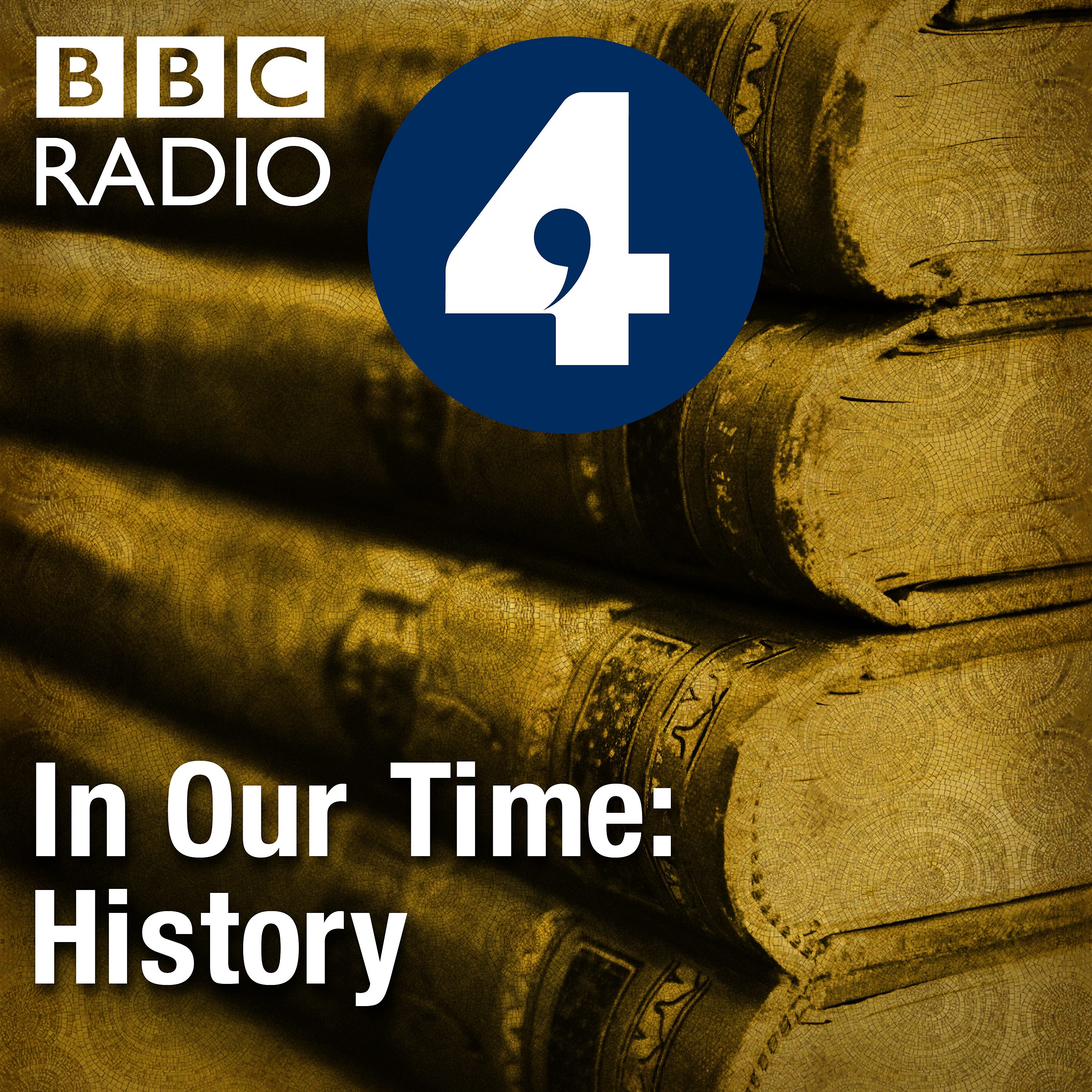Alcuin
Description
Melvyn Bragg and guests discuss Alcuin of York, c735-804AD, who promoted education as a goal in itself, and had a fundamental role in the renaissance at Charlemagne's court. He wrote poetry and many letters, hundreds of which survive and provide insight into his life and times. He was born in or near York and spent most of his life in Northumbria before accepting an invitation to Charlemagne's court in Aachen. To this he brought Anglo-Saxon humanism, encouraging a broad liberal education for itself and the better to understand Christian doctrine. He left to be abbot at Marmoutier, Tours, where the monks were developing the Carolingian script that influenced the Roman typeface.
The image above is Alcuin’s portrait, found in a copy of the Bible made at his monastery in Tours during the rule of his successor Abbot Adalhard (834–843). Painted in red on gold leaf, it shows Alcuin with a tonsure and a halo, signifying respect for his memory at the monastery where he had died in 804. His name and rank are spelled out alongside: Alcvinvs abba, ‘Alcuin the abbot’. It is held at the Staatsbibliothek Bamberg -Kaiser-Heinrich-Bibliothek - Msc.Bibl.1,fol.5v (photo by Gerald Raab).
With
Joanna Story
Professor of Early Medieval History at the University of Leicester
Andy Orchard
Rawlinson and Bosworth Professor of Anglo-Saxon at the University of Oxford and a fellow of Pembroke College
And
Mary Garrison
Lecturer in History at the Centre for Medieval Studies at the University of York
Producer: Simon Tillotson
More Episodes
Melvyn Bragg and guests discuss the most influential work of Thorstein Veblen (1857-1929). In 1899, during America’s Gilded Age, Veblen wrote The Theory of the Leisure Class as a reminder that all that glisters is not gold. He picked on traits of the waning landed class of Americans and showed...
Published 12/14/23
Published 12/14/23
Melvyn Bragg and guests discuss the North African privateers who, until their demise in the nineteenth century, were a source of great pride and wealth in their home ports, where they sold the people and goods they’d seized from Christian European ships and coastal towns. Nominally, these...
Published 12/07/23


